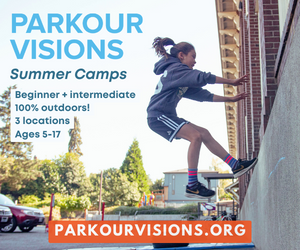Few things elicit my momma bear instincts more than when my child’s feelings are hurt because of a friend. It’s a horrible feeling if your child wasn’t invited to a birthday party or if their friend left them out. As our kids get older, we have less and less control over their lives, and it’s a tricky adjustment since us moms are used to being the go-to fixers, helpers and figure-it-out-ers.
Just as we have to let them learn to use scissors and measure the flour themselves (cringe!), we also have to let them navigate their social relationships on their own. There are times when you are absolutely certain that you need to intervene – for example when safety is an issue or if the bullying won’t stop. This is more of a guide for when you aren’t sure if you should intervene, if your gut is feeling wishy-washy.

If you find yourself talking to your friends or your partner about whether or not to intervene in your child’s social conflict, I have the following advice: offering your child a sounding board is good, telling them what to do and how to respond could set you up for problems later on, taking over is not a good idea. Here’s why:
Practice Makes Perfect (or Better, Anyway)
Learning to solve problems takes practice, and it takes awhile to get good at it. Like many things, kids often have to get it wrong to understand the lesson. Children are naturally ego-centric; they will frequently choose the option that best serves their own interests. Sometimes learning that your friends won’t want to hang around you as much if you are always telling them what to do is better felt than heard from a parent. Just as kids will sometimes learn to ride a bike or swim once all their friends are doing it, some kids will learn to navigate social situations better through peer interaction and trial and error.
Subtle Messaging
Many of us like to take over a chore or task because it’s faster and easier if we just do it ourselves. I could bribe or debate or cajole my kids into folding the laundry or I could save the mental energy and just do it myself. But here’s the thing: If you solve your kids’ problems, it’s a subtle message that you don’t trust them to do it well on their own. Over time this can lead to a lack of confidence, which can lead to anxiety. I see a lot of kids in my office who fear not being able to do things right the first time or who don’t even know how to get started with conflict. Many of them look to their parents to fix things for them. Unlearning this is hard for everyone. It takes more time, but offering guidance from the back seat now will pay dividends later on.
Teach them to Problem-Solve
When you child comes to you about a social problem, first make sure you have time to provide your undivided attention. If not, schedule a time for this. I swear, the minute I sit down to do some work, a sort of sonar messaging emits from my body and my children flock to me with concerns.
Once you dive in, empathize with their struggle, and let them know this happens to you sometimes also. Next, ask if they want some help figuring out what to do or if they just need to vent. If they want to vent, fight all urges to offer advice and just let them vent. If they want help, ask them how they are thinking about solving this and maybe help them weigh the pros and cons of each option. If they want you to talk to their friend’s mom, remind them that they have the skills to deal with this on their own. If they don’t fully have the skills, well, you’ve got yourself a teachable moment! Acknowledge that most conflict is messy, that there are many ways to approach it, none of the best ways are likely to be easy, and it might not work out on the first go around. For example, letting something that’s really bothering you slide might be pain free initially but might ultimately make you more unhappy. Once they have made a decision on how to proceed, wish them luck and let ’em know you’ll be there if they want to debrief afterwards.


















